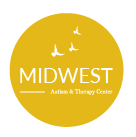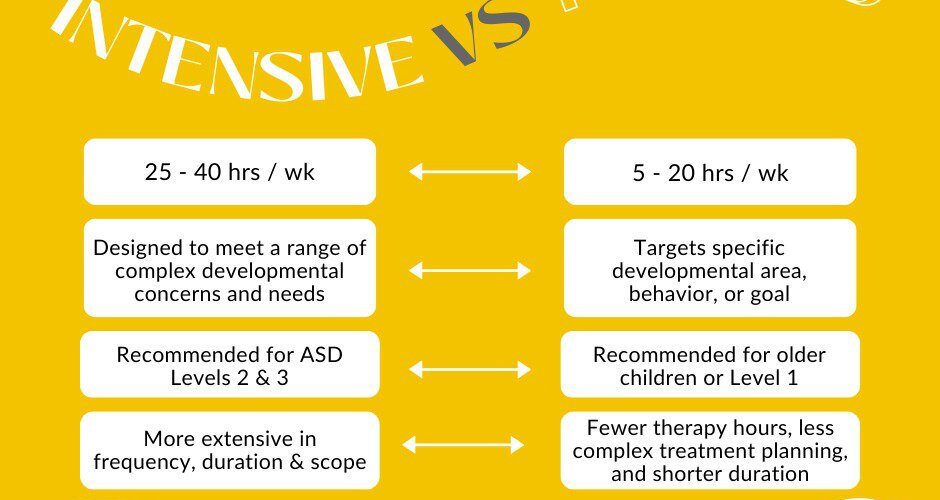If you’ve been researching Autism therapies, you’ve likely come across an article or two on Applied Behavior Analysis (ABA) therapy for Autism. That’s what we do here at Midwest! ABA programs aim to support individuals in developing key social, communication, and behavioral skills. They also use positive reinforcement to build new skills and help reduce negative behaviors.
But, ABA therapy isn’t one-size-fits-all. You’ll also need to determine whether your child should receive intensive or focused therapy services. The choice between the two is influenced by many factors including:
- Age
- Developmental Level
- Case Complexity
- Family Dynamics
- And More
Let’s take a closer look at intensive vs. focused therapy and explore the differences between these two care delivery models!

Intensive Autism Therapy
Intensive ABA Therapy (also known as Comprehensive Therapy) refers to a treatment regime that is extensive in frequency, duration, or scope. What this means in non-clinical terms is that intensive therapy equals a high number of therapy hours over an extended period to meet a range of complex developmental concerns. Goals for intensive ABA therapy vary from child to child, but often include individualized treatment plans to support:
- Intellectual Functioning
- Language & Communication Development
- Daily Living Skills
- Social Functioning
Typically, these programs provide 25 to 40 hours of therapy each week for 1 to 3 years. Intensive services are often recommended for children with Level 2 or 3 Autism Spectrum Disorder who have significant delays in more than one developmental area.
Focused Autism Therapy
Focused Therapy is a less intense option designed to target a specific developmental area, behavior, or goal, rather than a wide range of developmental skills. In short, focused therapy means fewer therapy hours, with less complex treatment planning and, usually, a shorter duration of treatment.
The frequency and number of hours varies from child to child, but typically ranges from 5 to 20 hours per week, depending on individual goals. Focused Therapy is often used for older children, or those with milder forms of Autism. Check out more information about our Home-Based Services as a Focused Therapy option.
Factors Influencing Therapy Choice
To determine which therapy option is best suited to your child, your BCBA will complete a functional behavior assessment. The behavior assessment reviews your child's strengths, challenges, and goals to inform their treatment plan and the type of therapy services required.
Other factors considered by ABA providers include family preferences, lifestyle, transportation, and ability to commit to intensive therapy schedules. Therapy plans are regularly evaluated for effectiveness and adjusted as your child progresses or new goals are identified. For example, a child enrolling at age two might start by receiving intensive therapy and move to a focused therapy model as their needs change and goals are met!
To learn more about the clinicians who will help you determine which option is best for your family, visit our team page: https://midwestautismservices.com/our-clinicians/
In Conclusion
Both Intensive and Focused ABA offer valuable therapeutic benefits. Choosing the right approach involves careful consideration of your child's current skills and goals accompanied by professional guidance and collaborative treatment planning. The bottom line is that personalized care is key to supporting your child and helping them reach their full potential. To learn more about services available with Midwest Autism & Therapy Centers, contact our enrollment team at (515) 513-9649.


